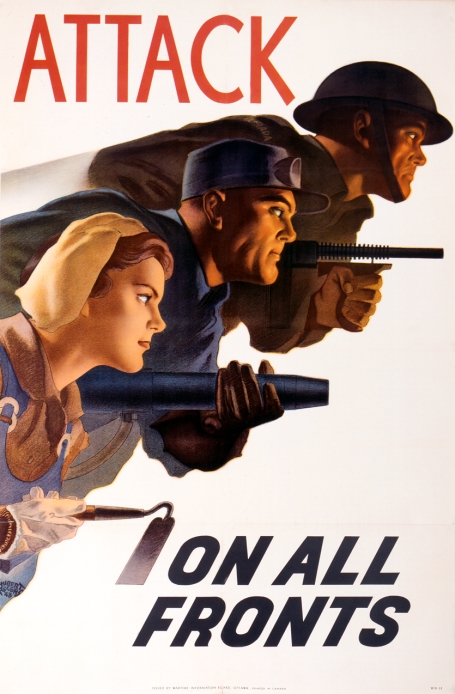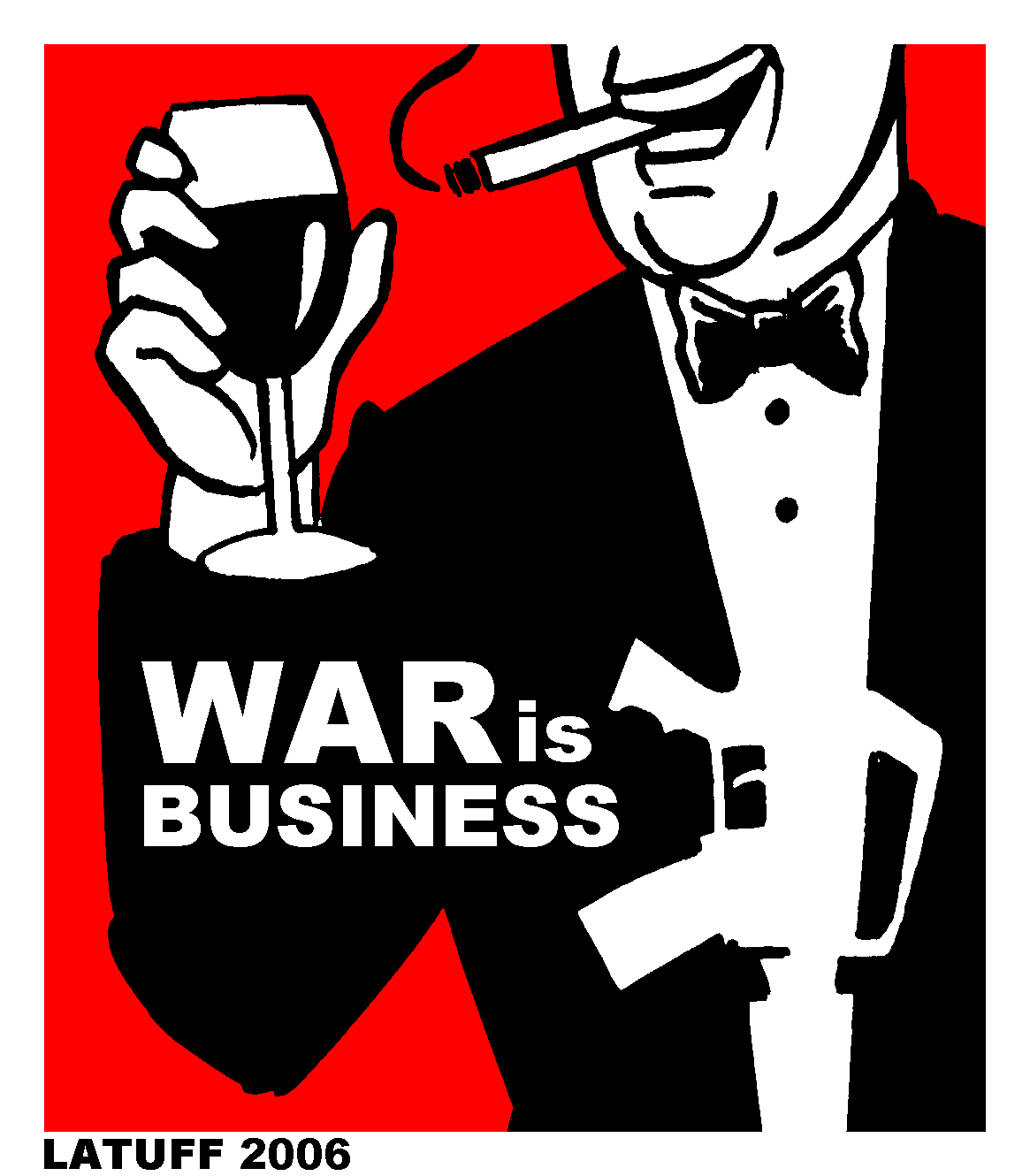Captains of Industry (Part 2b): “Teach a Man to Fish”
 •
by
•
by FeudalCarpenters of Canada
In Part 1 of The Captains of Industry series, we discussed how the working-manager has drastically changed the way eRep's economy now functions. It's not that old ways have been superseded, but rather that new options have opened up.
Let us begin by stating that the first step of a Captain of Industry is to be profitable in order to grow his number of companies, then become self-sufficient in food and then weapons, and finally to reach out to help other players improve eCanada’s industrial base. You can read how I have set up my company production by following this link: http://shortText.com/mt1wgr5ivrk
Want to follow the Captain of Industry method? Great news, with the recent changes making companies only 10 Gold along with 3 free plots of land, eRepublik is now better designed for the start-up of a self-sufficient industry.
Here’s how it all starts:

Food, Guns, Fights: The 3 Fronts of the Industrial Warrior
Step 1 – Work, Train, Save, and Grow
--Every CAD you save will let you invest it in your citizen towards future growth of your skills and wealth. There is more potential now in eRep to compound the value of your wealth. In the first month here, you can only do minimal damage in a battle, so spending money on weapons and food for fighting is not efficient. It is worth spending gold on the 50% Training Booster, but I would argue that you should wait until you have your first company before spending Gold on boosters (never spend money on work boosters – total waste). Save the Gold you earn from advancing a level, your Super Soldier medals, and Hard Worker medals. Spend it towards your first company instead.
Keep in mind it will cost you 10 health each time you work in your own company. Make sure you can produce enough product to cover the cost of buying 5 pieces of Q1 Food. It’s a safe bet that if you work at 100 health, that you’ll be able to sell enough to cover the 4 CAD (or less) food cost and save more CAD on top of that.
Step 2 – Your First 2 Companies
--The best thing you can do right now as a new player is working in your own company. This will allow you to:
A) Gain extra experience (2 pts. each day per company) so as to sooner earn 1 Gold for going up a level.
B ) Sell what you produce for added profit
C) Increase your work-skill at double the rate, meaning you will produce extra in your own company and receive a wage increase with your employer
What company to open first? Make it a raw materials company. Iron will get you a little more work-skill increase due to the 25% production bonus Canada enjoys. Although, prices are a couple cents cheaper when you want to sell the iron you make (0.05 CAD – 0.07 CAD). Grain produces less (with a little less work-skill, too) but the price seems to be steadier than iron (0.08 CAD-0.10 CAD).
Of course, if you want to experiment with both it is quite easy, since the resale market will get back your 10 Gold investment very easily, or you can simply migrate the company to another resource (but only once).
I would suggest starting with grain, since you will need a grain company later when you start making your own food. Work each day, save your raw material for a good price on the market, save what you sell, and invest it towards either another raw material company or a food company. Two raw companies is the best choice, since you will then be better prepared when you can purchase your third company and enter into the Food Industry.
Step 3 – Feeding Yourself~Become a Self-Sustaining Worker
--Once you have at least 1 grain company and 1 food company, you can start producing your own food. It is not efficient supplying a food company with only 1 grain company, since it requires the product of 2.3 grain companies to supply the maximum productivity of your food output. For example, I produce 272 Grain per company, but I use up 624 Grain each time I work at my food company. I can still make food with less than 624 Grain, but it still costs me 10 health to produce less food. Therefore, find ways to supply yourself with enough grain. I’ll explain later how you can get extra grain with a work-swap or grain banking program.
You can still turn a profit/feed yourself by running with 1 grain and 1 food company, yet I believe this process would be less efficient/slower than if you simply ran with 2 raw while saving for 1 food company.
Step 4 – Arming Yourself~Become a Self-Sustaining Soldier
--This will be elaborated in Part 3 of the Captains of Industry series. It follows much the same model as setting up a food source, yet with the added step of upgrading companies to increase your number of fights while reducing the amount of work required.

“Conspicuous consumption of valuable goods is a means of reputability to the gentleman of leisure.”
Thorstein Veblen ~~ Theory of the Leisure Class (1899) Chapter 4: “Conspicuous Consumption”
The biggest downside is that the worker-manager may have diminishing returns once many more people switch (we have seen prices drop noticeably in the last 2 weeks). There will be less profit in selling your wares in the market. When profit drops considerably, it will be worthwhile to swap products and distribute them. There is already a way to reduce income tax and increase your profit by work swapping with another working-manager. Similar plans will evolve as people find new ways to tweak efficiencies out of the system.
The working-manager option is opening up the game to new models of doing charity, supplying soldiers, and building citizen strength.
For example, travis jong dring wants to revive Canadian Health Services. He can request funding from the govt or donations from players to run the system at a loss, simply by employing people and giving away the food produced. Or, he can adopt another approach that would allow him to turn an initial investment into an infinite source of food. Check out my comments in his article to understand this method.
Or, one can go the route of Lavis Knight who invested heavily in companies sot that he can now meet his own needs and then use the extra stock he produces to help new players receive supplies. The Captain of Industry model may seem individualistic, but I would argue it opens us up to new methods of assisting new players and building a stable base.
Quite simply, investing now in a smart way will let you steadily retain your current holdings (not spend them away on food or guns) while building wealth. Once you reach the point where you can feed and equip yourself for all the work and fights you need each day, you then have the ability to play eRep with greater liberty. You will have the guarantee of enough food and guns, rather than waiting for your name to come up in a long supply chain that might
A) Have its funding cut or spent before you get supplied
B ) Be reduced if funding is adjusted lower
C) Be missed if someone doesn’t log in that day to supply
D) Require taxing new players who need supplies just as much, if not more, than you do
At one point it may well be worth considering if old supply methods for military organizations can be adapted towards greater self-sufficiency. Investing gold into companies run by CAFers will be a long-term savings that will make Kilgore Trout’s proposal to supply soldiers’s 300 wellness per day a reality. A sacrifice of gold now and of several fights per day in the future will turn the CAF into a leaner, meaner military body. With the faster increase of citizen workskill, the added productivity will benefit the country. There is even worth discussing the potential for building a merchant warrior army: one that would have divisions specializing in production-types that would supply other divisions with the raw or finished product needed by their counterparts. This would be an era of increased accountability and responsibility, resting at the citizen level, rather than remaining at the lofty heights of those controlling the supply chain. It’s messier, more complicated, but offers more savings with greater punch per dollar into the future.

“The anthropomorphic cult and the divinity disintegrate as time goes on. Among these alien motives which affect the devout scheme in its later growth, may be mentioned the motives of charity and of social good-fellowship, or conviviality; or, in more general terms, the various expressions of the sense of human solidarity and sympathy."
--Thorstein Veblen – Theory of the Leisure Class Chapter 13: “Survival of the Non-Invidious Interest”
Here are two other ways an established Captain of Industry can help grow the potential of a newer player, rather than just increasing his own coffers.
1) Work-swapping
2) Grain Banking
Work-swapping is an extremely easy system to set up and manage. It involves one player working in another player’s company at minimum wage and the vice versa. For equal balance, one could find someone else with the same skill level and make an equal trade in the work-swap ~ the benefit being that you both pay minimum income tax and share in equal profit. I am recommending that more experienced players pair up with a beginner business owner so as to help the new player get established sooner.
For example, I am working at Olafur Knutsson’s grain company, producing 272 grain for him, while he is working at my company to produce 220 grain for me. That means I basically supply him an extra 52 grain each day as a way of assisting him, while I still benefit from his labour (the only cost being a minimal income tax). In addition, I also lent him some gold to help start his food company sooner, so that he is able to gain double the work experience, feed himself with the food he produces and with the grain we share, plus sell some excess food to save towards repaying the loan I gave him or saving towards another grain company. Once he has a second grain company to supply almost all the grain he needs, then I can move on to help another player with a small loan and work-swapping. It is very easy to manage and only requires trust between two players, and the risks are small because the loans are less than 10 Gold at a time.
I encourage other business owners who can spare 5 CAD a day and a small amount of Gold for a loan to consider helping out a new player with a work-swap agreement.

“Labor wants pride and joy in doing good work, a sense of making or doing something beautiful or useful - to be treated with dignity and respect as brother and sister.”
--Thorstein Veblen
Grain Banking is a concept I have not yet been able to implement, but I hope to get it kick-started with this article. This would require a greater time commitment but it involves almost zero cost in money. The basic plan is to hire new company owners who need grain for their food company. Since it takes at least 2 grain companies to supply 1 food company, it can be a long time before someone can afford to buy 3 companies.
With Grain Banking it is possible to run a food company at near maximum productivity while owning only 1 grain company (the same method can be applied to the iron/weapon industry, too). A business owner like me would offer to hire someone at their grain company for minimum wage. In turn, I then sell back the grain to my employee who purchases it with his food company. The price of the grain would be higher than market value so it does not get gobbled up by someone else (if it gets purchased at higher than market value, there will be profit to buy more market grain anyhow). The price would recoup the minimum wage cost to me before I then donate the money back to the person or purchase a high-ratio money market offer from my company to his citizen account (this MM transfer can be done every 3 days or once a week).
Basically, at no cost to me and only the cost of 1 health to the employee, all the grain produced is given back to the person who made it. This is better than working at a company for regular wage and buying it on the market because A) there are no price fluctuations, B ) there is minimal tax, and C) you receive the full benefit of your work as an employee (in fact it is better than the 10 health cost of working as a manager in your own company). It’s a good thing I locked in a wack-load of 1.20 CAD job offers before the tax cost went up. Please contact me about participating if
A) You are a citizen under Level 15
B ) You have at least 1 food company and not more than 1 grain company
C) You have no work obligations to other organizations

This concludes Part 2 of the Captains of Industry series. In Part 3, I will elaborate on how to begin producing weapons, upgrading companies, and finding the right balance of working and fighting. If you are interested in following more of the Captain of Industry method, consider asigning up in the MOO forum as a party member where there is an ongoing discussion about the working-manager model and how we can create a responsible group of Captains of Industry to help shape the emerging economy and help new players find a spot in it. See you there!
~~~~~~~~~~~~~~~~~~~~~~~~~~~~~~~~~~~~~~~~~~~~~~~~~~~~~~~~~~~~~~~~~~~~~~~~~~~~
First published Jan. 29th '11, this series is dedicated to The Bare Knuckle Field Marshal ~~ always looking for ways to help out new players even when he had nothing.


Comments
MOO!!!
I heartedly recommend the Captains of Industry methods. I am Olafur Knutsson and they are working for me. MOO!
Since that article is so darn long, I'll repeat the offer I made near the en😛
I'm offering a chance to try 'Grain Banking' for 2 new players who meet the following criteria and need some extra grain for their food company:
A) You are a citizen under Level 15
B ) You have at least 1 food company and not more than 1 grain company
C) You have no work obligations to other organizations
PM me with questions if you have interest. I don't need you to regularly or at 100 health, since you make what you need when you need it. I'm just there to help give you leg up in the grain market.
Definitely a good concept Plug. I, too, am willing to try out this grain banking idea with some new players. If you get more interest than the two you're willing to try out, send them my way.
You. Are. God.
At Guru 11, I can generate 180 health everyday with the help of 2 grain companies and 1 Q1 food company.
For just 30 gold, I can self-sustain for the rest of my e-life.
The downside is that it takes 540 grain to produce 90 Q1 Food, and with the 2 raw companies, I can only produce up to 514 grain. But it's nothing an Apprentice couldn't fix.
But if you have more venture capital, you can run all 3 businesses and live off your profits.